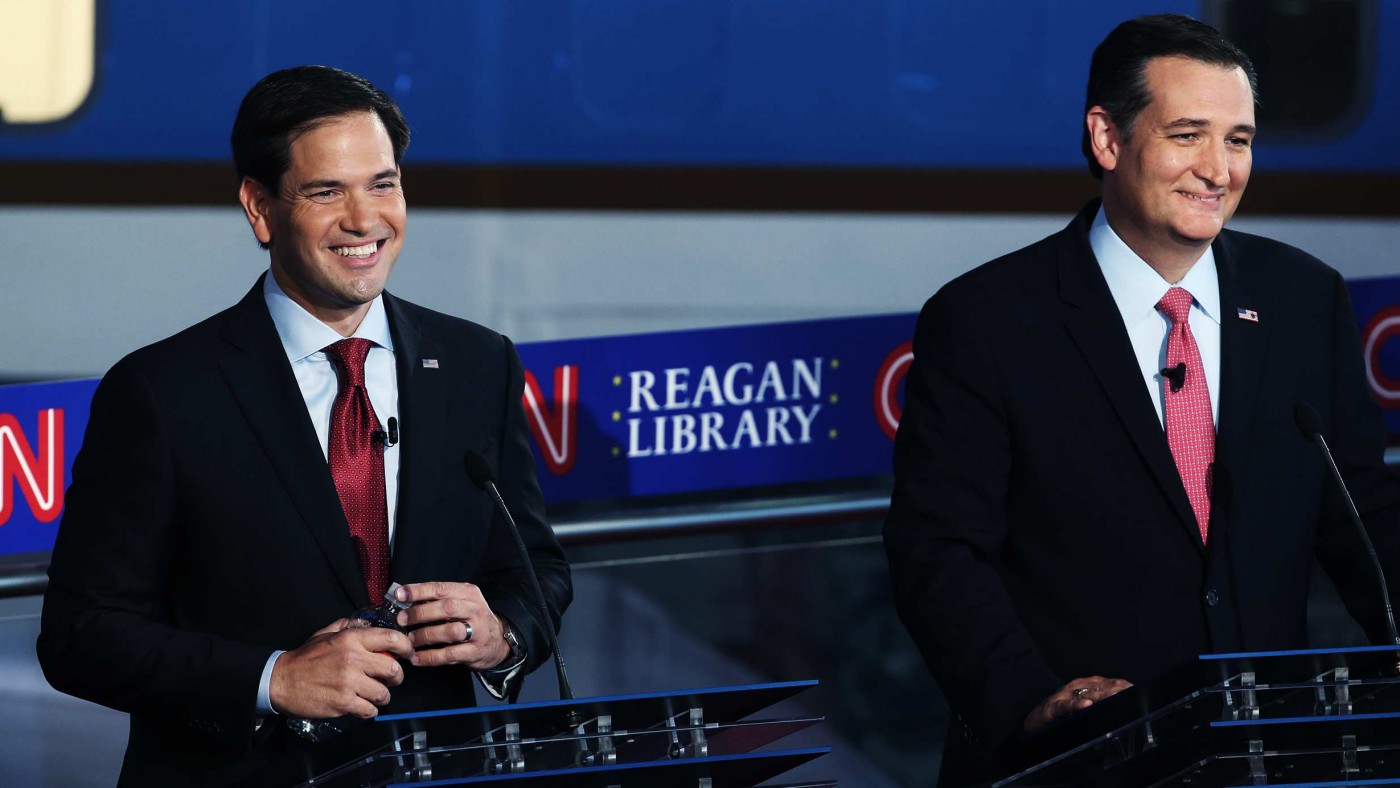With the terrorist attacks in Paris, look for immigration to play a greater role in the presidential campaign in the weeks ahead. That’s why it’s important to evaluate Senator Ted Cruz’s (R-TX) misguided attacks on Senator Marco Rubio (R-FL). The two 44-year old senators of Cuban descent are battling it out on immigration.
Cruz, speaking on the radio program of right-wing talk show host Laura Ingraham, presented his new immigration plan on Friday and said that Rubio opposed every amendment to tighten border security. It’s unclear from the context whether “every amendment” means every border security amendment proposed by Cruz and Republican Senator Jeff Sessions (R-AL), or every amendment ever proposed.
Both Rubio and Cruz voted in favor of an amendment by Senator John Cornyn (R-TX) to tighten border security that would have required the Department of Homeland Security to certify that the Southern border was safe before allowing undocumented workers to receive “green cards.”
The RESULTS amendment, as it was called, would have required continuous monitoring along the Southern border; a 90 percent apprehension rate of people trying to enter the country illegally; a biometric exit system to track those who overstay their visas; a nationwide electronic verification system that firms would use for prospective employees; and an increase in Border and Customs officers by 10,000 over five years.
The 2013 Senate immigration bill appropriated $46 billion over ten years to improve security along the border with Mexico. The bill failed to pass the House of Representatives.
As well as voting for increasing border security back in 2013, Rubio supports it today. In his book, American Dreams: Restoring Economic Opportunity for Everyone, published earlier this year, he wrote, “The first step must be enforcement measures that are effective and verifiable. Such measures would include securing the most vulnerable and most trafficked sectors of the southern border, mandatory E-Verify, and the full implementation of an entry-exit tracking system.”
The major difference between Rubio and Cruz is not border security, but the treatment of undocumented workers in the United States. After securing the border, Rubio would allow those who are here illegally to pay a fine and join the back of the line for those who are applying for permanent residency.
Cruz would criminalize visa overstays; require foreign countries to take back their deported citizens; end birthright citizenship, which grants babies born in the United States the right to citizenship; end all benefits for illegal workers, including tuition; and ensure that workers were legal before allowing firms to deduct their wages from gross income.
America needs more immigrants. Few benefits are available to immigrants, unlike Europe, so they come to work. In 2014 the labor-force participation of foreign-born workers was higher than native-born workers (66 percent vs. 62 percent). Their unemployment rate was lower (5.6 percent, compared with 6.3 percent for native-born Americans)

This would result in additional economic growth, allowing the government to cut spending and lower taxes.
If the Senate immigration bill had passed Congress and had been signed into law in 2013, the Congressional Budget Office estimated the increased number of visas and the reforms in the legislation would result in an $897 billion reduction in the federal budget deficit over the next 20 years.
The economy needs both low-skill and high-skill workers. Native-born Americans rarely want to make a career out of cleaning hotel rooms or picking fruit, but these jobs need to be done, and low-skill immigrants want to come and do them. Low-skill workers create jobs for native-born Americans. For instance, farms flourish when immigrants provide the labor to harvest crops. With no immigrants, the farms would go out of business, and we would import more produce from overseas.
Immigrants are disproportionately entrepreneurial, which in turn yields tax revenue and more jobs for Americans. Economist Robert Litan has estimated that the U.S. economy now generates about 15 new companies a year that are likely to grow to have a billion dollars or more in annual revenue. Additional immigration could increase that number.
America would benefit from more legal immigration, both high- and low-skill, paired with border security that also guards against those who try to enter illegally or who overstay their visas. This will help achieve the increase in economic growth to which both Rubio and Cruz aspire.
After outsiders Donald Trump and Ben Carson, Rubio is ahead of Cruz in most polls. Although politics is full of surprises, if history is any guide, support for Trump and Carson is likely to wane. For those with a long-term view, the relative positions of Rubio and Cruz, now in third and fourth places respectively, are well worth watching.


